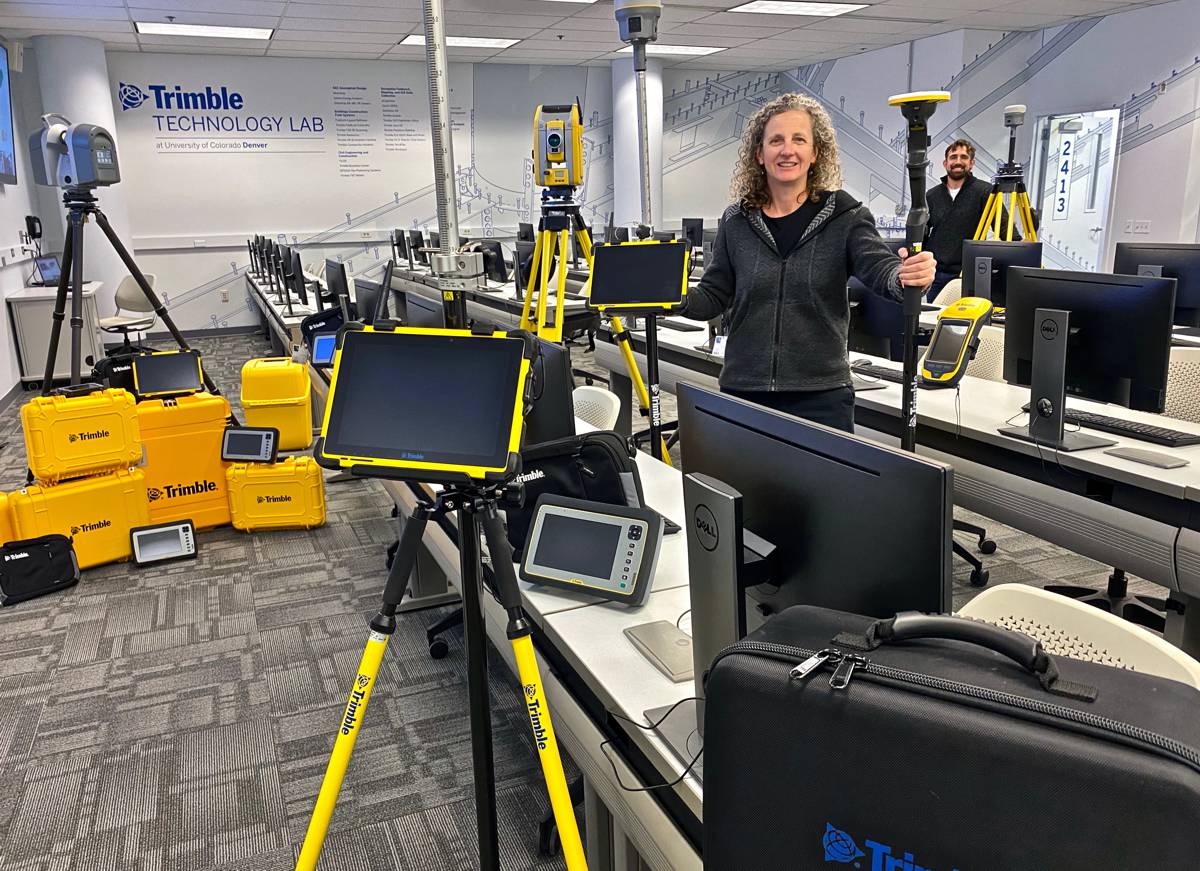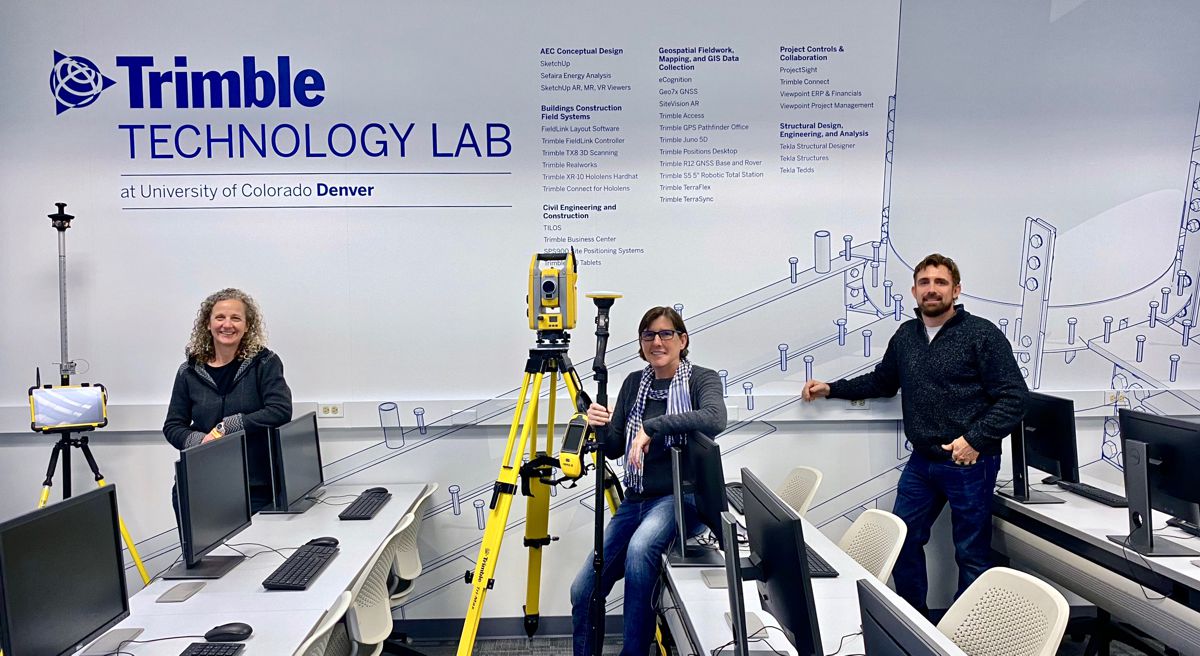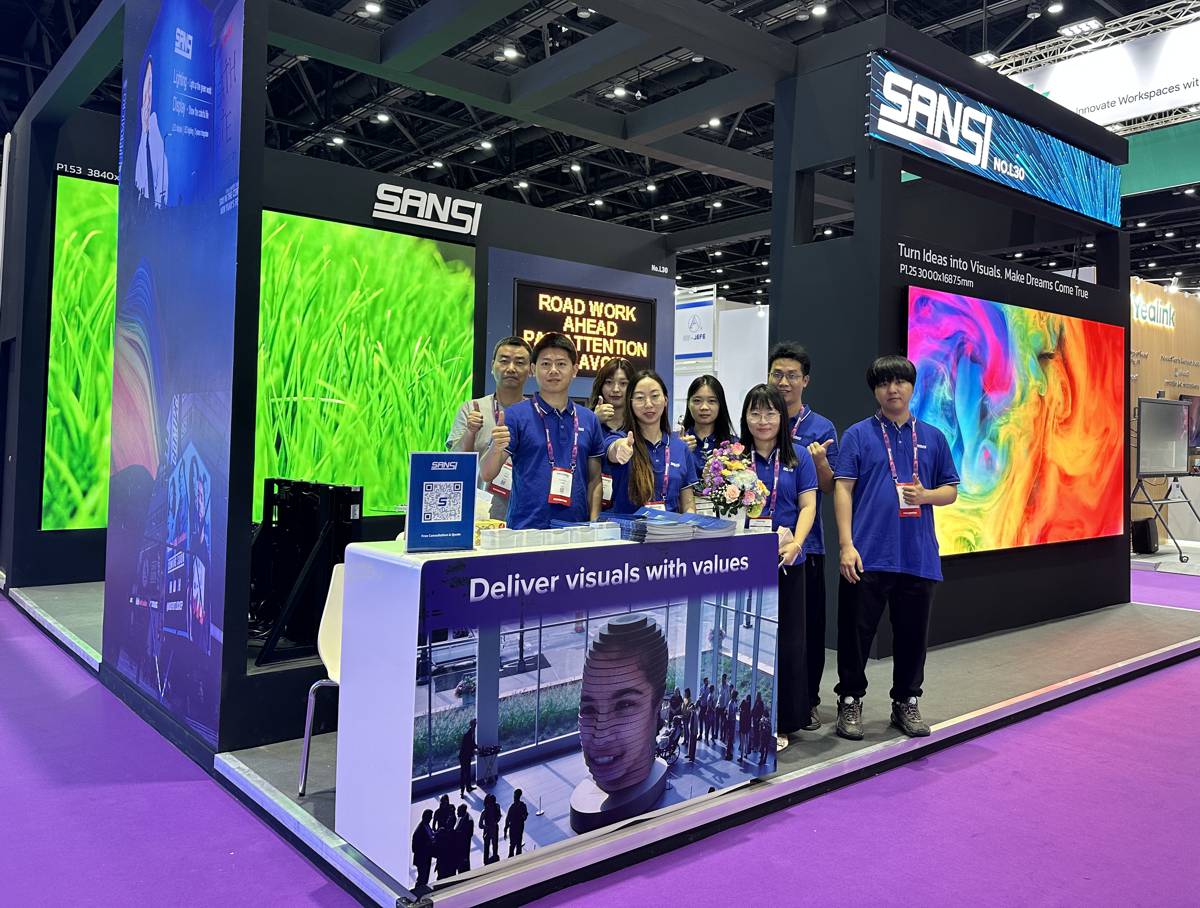Trimble helps universities with donations of Technology Labs
Technology is driving the construction industry forward today – from hardware products that enable better positioning, scanning, automatic or remote-control access to software solutions that eliminate paper processing and enable data-driven decision making.
Technology is here to stay, creating an efficient, interconnected field-to-office loop, which will likely become an even bigger industry asset as the world increasingly moves towards digitization.
At the same time, the average construction worker is in their 50’s and nearing retirement. As baby boomers age and new workers replace them, there is a fundamental need to equip the future workforce with the technology skills they need to succeed on the job.
Trimble, a global leader in construction technology, is helping to fill that gap by giving educators and students access to the latest hardware and software tools via Trimble Technology Labs gifted to select universities worldwide. The technology labs, which consist of a customized set of leading hardware and software solutions, are designed to provide students with hands-on technical knowledge, while also exposing them to the wide variety of construction jobs available today, many of which are highly-focused on technology – from managing complex software applications to implementing sophisticated lasers and scanning equipment.
The technology labs are supplemented by a number of other initiatives aimed at providing access and resources to universities. This includes a Visiting Professionals Program where Trimble-sponsored AEC professionals visit higher education campuses to demonstrate how Trimble products and workflows are deployed. Trimble also invests in research and innovation by funding research projects and supporting a variety of capstone projects. Put together, these opportunities provide students with cutting-edge technology skills, making them immediately employable upon graduation into a wide variety of job opportunities. This helps further fuel the construction labour market and equips our future leaders with the long-term skills they need throughout their careers.

How The Program Started
The first Trimble Technology Lab (TTL) was developed in 2016 after conversations with a faculty member at the University of Massachusetts Amherst who was also a highly skilled Trimble SketchUp user, author and extension developer. He wanted to add a larger portfolio of Trimble’s products into his program to help provide students with a deeper, more well-rounded exposure to construction technologies used in both the office and field, which would provide an advantage to his students when they graduated into their careers. As a result of the conversation, the first Trimble Technology Lab was born.
After talking to other faculty from around the world, Trimble determined that putting a broader portfolio of its solutions into students’ hands early on would help support not just students, but also educators and the industries they work in so an official education program was developed, which today has established 19 technology labs in 11 countries, with another 19 in the works.
Recently Established Labs
Three of these labs were established in November alone – at the University of Colorado, Denver, Illinois Institute of Technology and the University of Sao Paulo in Brazil, which is Trimble’s first technology lab in Latin America.
The labs are customised to meet the particular needs of each university program, though most include a core set of solutions. This typically includes: SketchUp Pro, Tekla Structures, Tekla Structural Designer, Tekla Tedds, Trimble Connect, Trimble RealWorks, Trimble Business Center, Trimble Sysque and Accubid, robotic and mechanical total stations, 3D laser scanners, Rapid Positioning Systems, Trimble Field Link, GNSS/GPS, and the popular mixed reality XR10 Hardhat with Hololens.
The labs are considered a long-term investment intended to be used for multiple years and include ongoing support and training. Trimble visits each campus as often as possible and often ends up granting new technologies as they become available. In addition to providing hardware and software solutions, Trimble also hosts Trimble Technology Days on campus, assists with boot camp-style classes specific to a solution or workflow, and sponsors a separate program called the Visiting Professionals Program wherein industry pros spend a day on campus sharing their day-to-day workflows and preferred toolsets.

What’s Ahead
Trimble has another 19 tech labs in the pipeline within six different countries. The metric for success is not necessarily more labs, but rather being strategic about the labs that are chosen, as demonstrated by their ability to make the most of the products and training Trimble provides.
New institutions are chosen by identifying top programs within a given region of the world, that are then invited to provide a detailed proposal. The Trimble education team carefully vets each application, and once approved, the process from kick-off to a signed gift agreement usually takes 4-8 months, which is followed by the installation of the tech lab. This is typically done within a designated physical space within the department – such as a large computer lab.
Trimble Technology Labs are truly a win-win for everyone involved – educators, students and the industry alike. For educators in particular, there can often be an academic-industry gap by way of keeping on top of what the latest and greatest technology in the office and field so the labs are designed to make it easier to understand and integrate cutting-edge technology into their curriculum and research.
With access to the latest technology, students become highly desirable for employers, helping to drive the industry forward since they enter the workforce immediately ready to tackle projects, and they have a platform to grow from throughout their careers as well. Since many students don’t ordinarily get a lot of hands-on experience with hardware in the field or a deep understanding of how the physical and digital worlds are connected, this is a great opportunity for them to be exposed to real-world applications and see the office-to-field technology loop in action.














